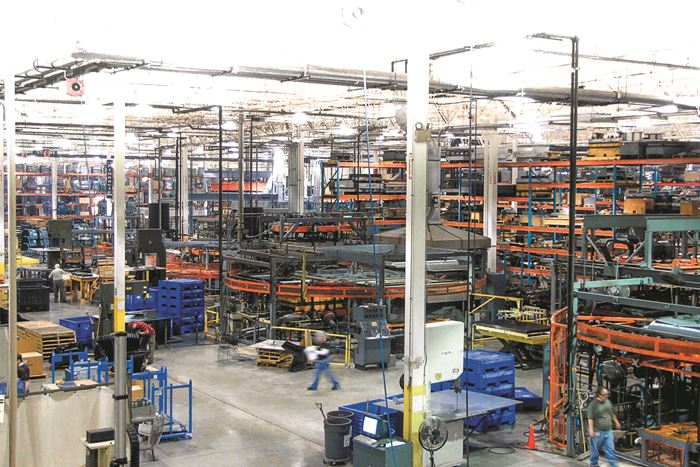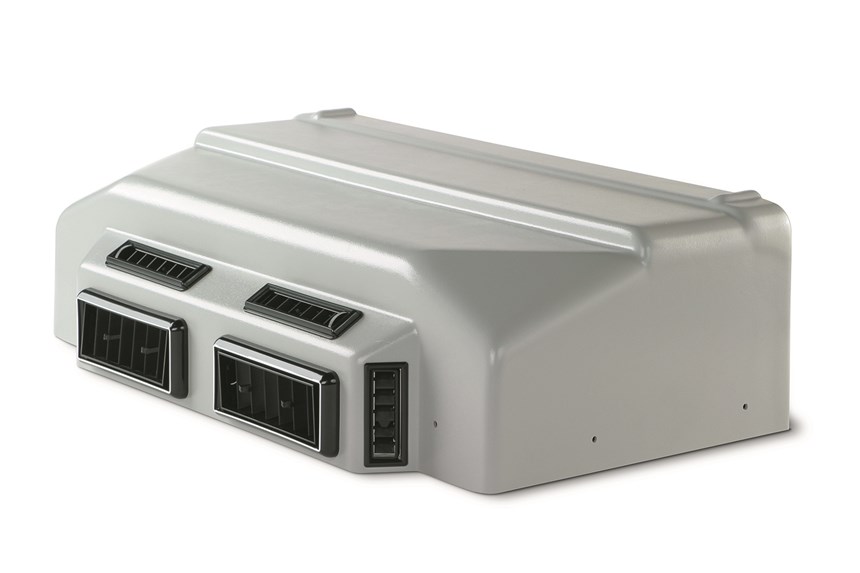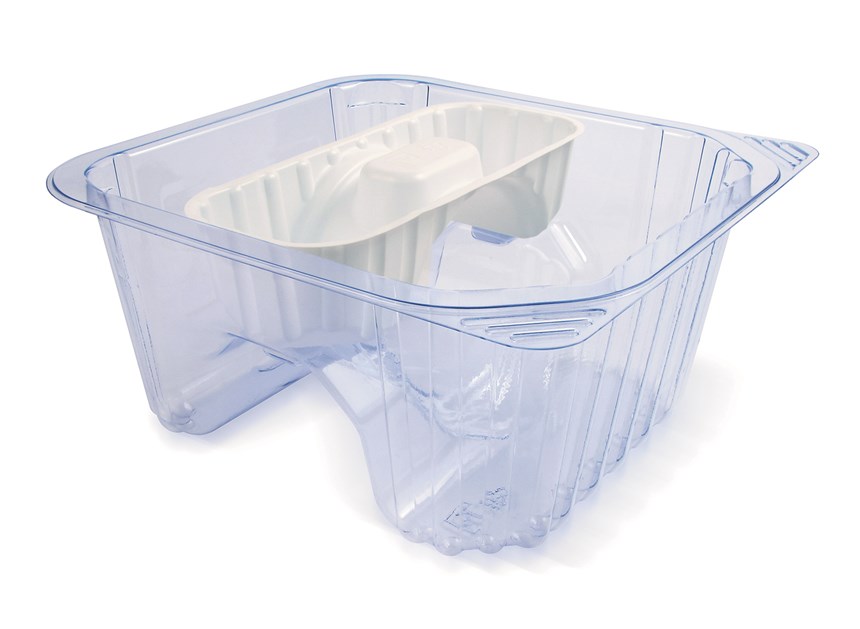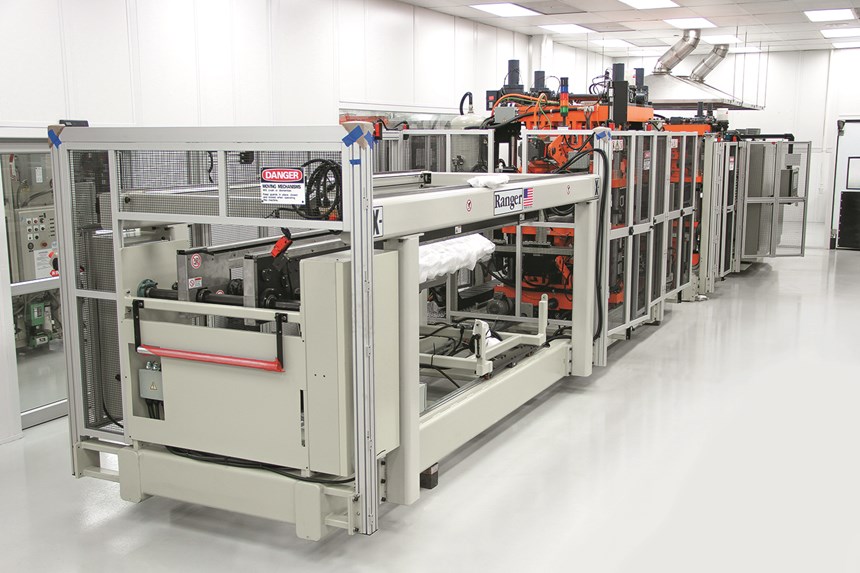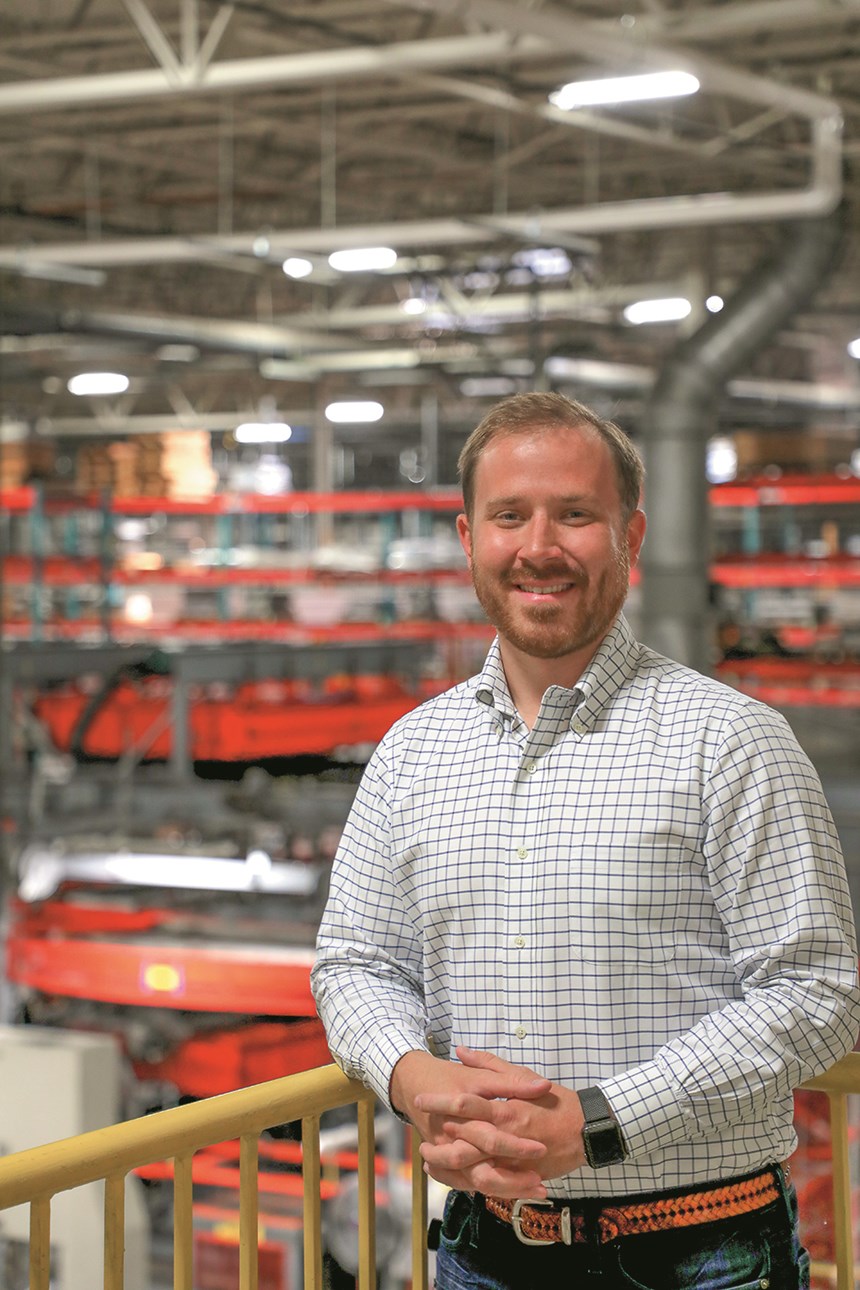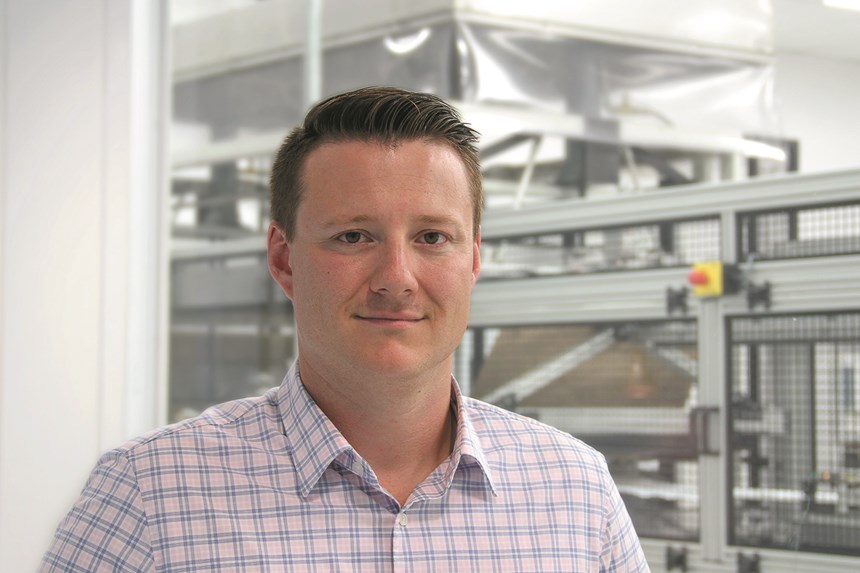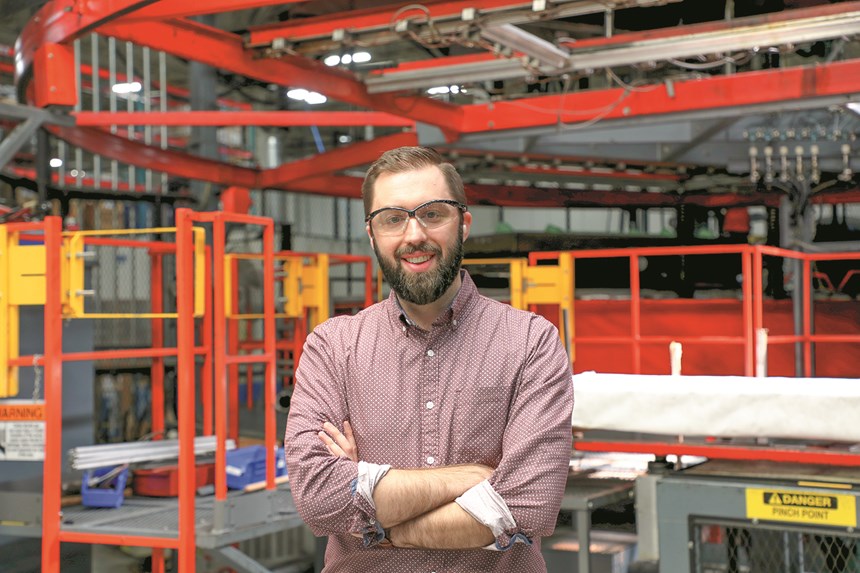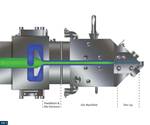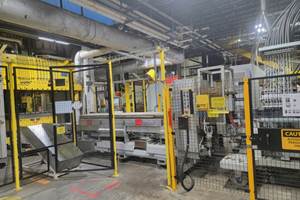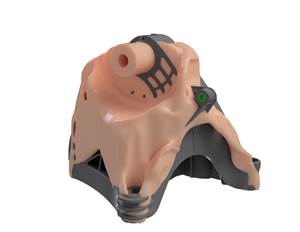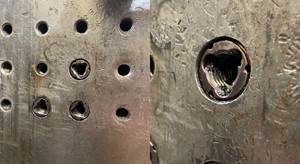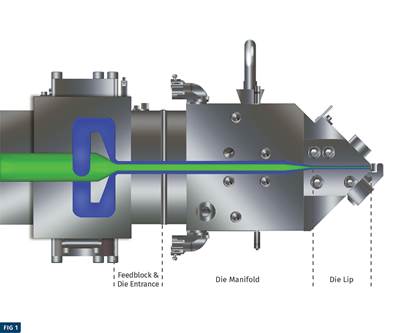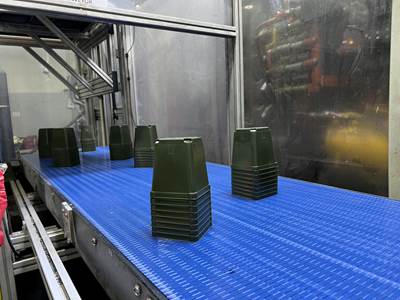Success Through Process Diversity
From heavy-gauge to light, and from the medical industry to the transportation market, Brentwood utilizes its wide range of thermoforming capabilities and expertise to engage customers around the world.
“Diversity is a point of strength and a major differen- tiator for us.” Those few words, spoken by Walter Banta, senior director of market development for Brentwood, speak volumes and outline a global strategy based on product innovation and market penetration for this processor, whose worldwide headquarters are in Reading, Pa. Light-gauge forming...heavy-gauge forming...PVC calendering...injection molding—Brentwood does it all, globally, for a wide range of markets from medical packaging to transportation to water cooling. “Typically, thermoformers focus on either heavy-gauge or light,” adds Banta. “We do it all.”
Brentwood started as a custom thermoformer in 1965, with two homemade formers and roughly a half-dozen employees. The company’s focus, at that time, was to create solutions
for whatever their customers needed, taking on any project—big or small, simple or complex—to meet the client’s requirements. As a result, Brentwood’s custom business became the incubator for future company segments.
Typically, thermoformers focus on either heavy-gauge or light. We do it all.
In 1971, Brentwood began a relationship with a major trucking company and invested the time and manufacturing resources to become heavy-gauge forming experts in the transportation industry. By 1973, Brentwood acquired a customer that would later change Brentwood from a small custom shop to a large player in the cooling-tower market. And when a medical company needed a manufacturer to form their 60-in. catheter tray in 1979, Brentwood stepped up to the challenge and built a special thermoformer to accommodate the extreme length. “By coupling those experiences with extensive knowledge of processing and materials,” Banta says, “we became experts in each application, industry, and manufacturing technique.”
Following this model over the years, Brentwood’s knowledge of plastics extended well past thermoforming. From custom-blending materials in the company’s calendering and extrusion facility to testing the performance of finished parts, Brentwood’s staff developed expertise in all aspects of its manufacturing processes. Today, it remains a family-owned and operated business, in its second generation, that employs 850 worldwide across 10 plants: six in the U.S., one in Mexico, and three more in India, Thailand, and the Czech Republic. Banta explains, “We follow our customers and have found that being close to them maximizes the value we provide.”
Brentwood’s largest manufacturing site is located where the company draws its roots, in Reading, Pa. Plastics Technology visited that 200,000 ft2 plant, which houses 20 thermoforming machines: six for heavy-gauge jobs, five for light, and nine more in a 30,000 ft2 ISO Class 7 clean room that’s also equipped with four injection molding machines. Brentwood makes most of its own tooling to support the thermoforming process and has a fused-deposition modeling (FDM) 3D printer for prototyping both parts and molds.
The company forms a wide range of sheet materials, including TPO, ABS, PC, HDPE, HIPS, PETG, foamed PETG, PP, and PVC. Though most sheet is outsourced, Brentwood extrudes its own calendered PVC. “We consider PVC processing to be a core competency, providing us a competitive advantage in a number of markets,” states Banta.
BREAKING BOUNDARIES
On the heavy-gauge side, Brentwood’s capabilities extend from basic vacuum forming to more complex processes like deep-draw, twin-sheet, and high-speed inline forming.
These competencies were added over time to match the company’s growth in the transportation industry, which it entered in the 1970s, at a time when putting plastic on a truck was unheard of. After a few successful projects, Brentwood gained a reputation as a trusted industry partner, and today it manufactures parts for everything from railcars and airplanes to automobiles and heavy trucks.
When customers come to us with outside-the-norm parts, we’re excited to create new design possibilities.
“Our goal for the transportation industry is to produce lighter, aesthetic, cost-effective components that preserve structural integrity and meet our customer’s requirements,” says Geoffrey Young, Brentwood’s transportation product-line manager. Brentwood specializes in forming popular materials for the rail and heavy-truck industries. For rail, the company forms low-flame/smoke/ toxicity (FST) materials and has completed technically demanding projects utilizing anti-graffiti and decorative films.
For heavy-truck applications, Brentwood often forms TPO, which it considers a great replacement for metal parts with high impact resistance. In fact, Brentwood was recognized by the Society of Plastics Engineers in 2015 for a pressure-formed dash panel used in a refuse truck.
LEADING IN LIGHT-GAUGE
On the light-gauge end of the spectrum, the majority of Brentwood’s custom thermoforming business is for the medical packaging industry. Inline forming of these packages takes place in the clean room, where the parts are not only produced but also run through quality control and packaged for shipment.
Brentwood’s clean room is certified to the ISO Class 7 standard and equipped with the latest technology available, incorporating automated conveyors, stackers, and robots that increase throughput and reduce costs. “Our aim is always to pursue new opportunities,” says Andrew Haus, Brentwood’s medical product-line manager. “We know that medical devices come in all shapes and sizes, so when customers come to us with outside-the-norm parts, we’re excited to create new design possibilities.”
That mentality dates back to Brentwood’s entry into the market in 1978, when the company began producing catheter trays. At the time, standard packaging required the catheters to be coiled, which created an undesired spring-like effect once the tubing was unpacked. Brentwood responded by building its own thermoformer that allowed it to make trays up to 60-in. long. In short order, the company’s first clean room was also built around that machine, expanding Brentwood’s medical product offerings.
Our goal for the transportation industry is to produce lighter, aesthetic, cost-effective components that preserve structural integrity and meet our customer’s requirements.
Brentwood’s latest development brings the company’s history full circle, extending the long-tray forming capability to an industry-leading 72 in. With the addition of a new, customized SencorpWhite Ultra thermoformer, Brentwood can produce parts up to an overall size of 72 in. long x 24 in. wide x 6.5 in. deep. Haus says of this machine,
“Its capabilities have enabled us to continue providing our customers with the most cost-competitive solutions in the medical packaging industry.” As a complement to long trays, Brentwood also forms deep tubs and bins at an industry-leading 8-in. inline forming depth.
SERVICES BEYOND MANUFACTURING
Whether the topic is heavy- or light-gauge thermoforming, or injection molding, Brentwood’s approach is to collaborate with customers to develop parts that turn customer ideas into reality through innovative strategy and precise design. “Our seasoned engineering team works with each client from concept design and prototyping through testing, tooling, and verification to ensure efficient designs and easy integration into end processes,” says Banta.
Brentwood knows process development is just as important to the success of a project as product design. Banta says, “Each one of our customers is assigned a dedicated support team that will work with them from start to finish to develop and carry out the best manufacturing strategy for their product. From modeling and material selection to tool design and fabrication, the Brentwood team is involved every step of the way, ensuring the process flows smoothly and customers are satisfied.”
Related Content
Celanese to ‘Shine’ at CES 2023 with Expanded Portfolio of Materials
With it acquisition of DuPont’s engineering resins, Celanese’s resin solutions for automotive electrification, e-mobility and consumer electronics are plentiful.
Read MoreLFT-D Thrives in Automotive and Other Durables
Teijin Automotive acquires its 10th direct long-fiber thermoplastic system as demand for this technology soars.
Read MoreDesign Optimization Software Finds Weight-Saving Solutions Outside the Traditional Realm
Resin supplier Celanese turned to startup Rafinex and its Möbius software to optimize the design for an engine bracket, ultimately reducing weight by 25% while maintaining mechanical performance and function.
Read MoreMolder Repairs Platen Holes with Threaded Inserts
Automotive molder ITW Deltar Fasteners found new life for the battered bolt holes on its machine platens with a solution that’s designed to last.
Read MoreRead Next
Research Reaffirms FDA Rules for Virgin PET Cap as Barrier
Study refutes previous research that raised doubts over V-PET’s effectiveness as a functional barrier layer when coextruded with R-PET.
Read MoreProcessor Turns to AI to Help Keep Machines Humming
At captive processor McConkey, a new generation of artificial intelligence models, highlighted by ChatGPT, is helping it wade through the shortage of skilled labor and keep its production lines churning out good parts.
Read MoreAdvanced Recycling: Beyond Pyrolysis
Consumer-product brand owners increasingly see advanced chemical recycling as a necessary complement to mechanical recycling if they are to meet ambitious goals for a circular economy in the next decade. Dozens of technology providers are developing new technologies to overcome the limitations of existing pyrolysis methods and to commercialize various alternative approaches to chemical recycling of plastics.
Read More

